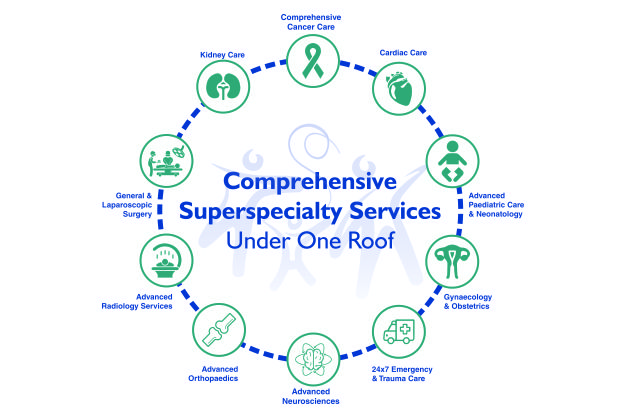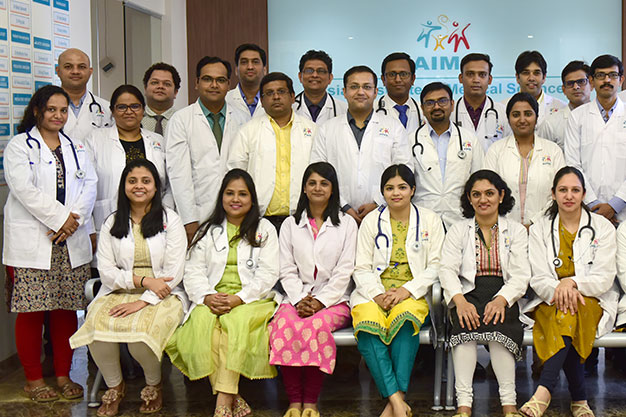
DATE : 08/09/2023
AUTHOR : AIMS Hospital
Introduction
A Kidney Transplant Procedure is a remarkable medical advancement that can significantly enhance the quality of life for individuals with kidney-related diseases. When a persons kidneys fail to function properly, it can lead to serious health complications and a decreased quality of life. In this comprehensive guide, we will explore everything you need to know about the kidney transplant procedure, including eligibility criteria, risks, benefits of kidney transplants, and the recovery process. India has emerged as a leading destination for kidney transplant procedures, offering world-class medical facilities and highly skilled healthcare professionals.
Understanding Kidney Transplants and Benefits of Kidney Transplants
What Is a Kidney Transplant?
A kidney transplant is a surgical procedure in which a healthy kidney from a living or deceased donor is implanted into a recipient body to replace a failed kidney. This transplantation allows the recipient to regain normal kidney function, including the filtration of waste products and excess fluids from the bloodstream.
Why Are Kidney Transplants Needed?
Kidney transplants are primarily required when an individuals kidneys no longer function adequately. This can result from various conditions, including:
- * Chronic Kidney Disease (CKD): Advanced stages of CKD can lead to kidney failure, necessitating a transplant.
- * End-Stage Renal Disease (ESRD): This is the final stage of CKD, where the kidneys lose nearly all their function.
- * Genetic Disorders: Some genetic conditions, such as polycystic kidney disease, can lead to kidney failure.
- * Infections: Severe kidney infections can damage the organs to the point of failure.
- * Autoimmune Diseases: Conditions like lupus or certain forms of arthritis can affect the kidneys.
The Kidney Transplant Procedure
- * Evaluation: Before a kidney transplant, both the recipient and potential donors undergo a comprehensive evaluation to ensure compatibility and assess overall health.
- * Matching: A suitable donor, either living or deceased, is identified based on blood type, tissue compatibility, and other factors.
- * Surgery: The transplant surgery involves removing the damaged kidney (recipient) and implanting the healthy kidney from the donor.
- * Recovery: After the surgery, recipients require close monitoring to ensure the new kidney functions properly and to prevent rejection.
Eligibility for Kidney Transplants
Eligibility for a kidney transplant is determined by several factors, including the severity of kidney disease, overall health, and the availability of a compatible donor. It is crucial to undergo a thorough evaluation by a transplant team to assess candidacy.
Benefits of Kidney Transplants
- * Improved quality of life.
- * Elimination of dialysis dependence.
- * Better control of blood pressure.
- * Normalization of kidney function.
- * Increased energy levels.
- * Enhanced life expectancy.
- * Risks and Complications
While kidney transplants are generally successful, there are risks and potential complications, including:
- * Rejection: Immune system of recepient may recognize the new kidney as foreign and attempt to reject it.
- * Infection: The use of immunosuppressive drugs to prevent rejection can increase the risk of infections.
- * Surgical complications: Like any surgery, there are surgical risks involved.
- * Side effects of medications: Immunosuppressive drugs can have side effects.
Recovery and Post-Transplant Care
Recovery from a kidney transplant involves close medical monitoring and adherence to a prescribed regimen of immunosuppressive medications. Patients are typically advised to:
- * Attend regular follow-up appointments.
- * Take medications as prescribed.
- * Monitor blood pressure and overall health.
- * Follow a healthy lifestyle to maintain the function of new kidney.
Conclusion :
A kidney transplant procedure is a life-changing medical advancement that can offer a new lease on life for individuals with kidney-related diseases. While there are risks involved, the benefits of kidney transplants often far outweigh them, leading to improved quality of life and extended life expectancy. If you or a loved one are facing kidney failure, consulting with a transplant team is the first step toward understanding the possibilities and making an informed decision about kidney transplant procedure. It is a remarkable medical advancement that has given hope and renewed health to countless individuals around the world.
At AIMS Hospital, Dombivli Dist. Thane, we have a dedicated Nephrology (Kidney Care) department where advanced facilities are available for dialysis and kidney transplant procedures. Book an appointment on aimshospital.co.in or call us at 0251 6185000 / +91 7506274959 for more details.
ABOUT US
About AIMSDirector's Message
Vision & Mission
Accreditations
Awards & Accolades
Our Network
Phone Directory
Designed by Web Creations 2022. All rights reserved.










